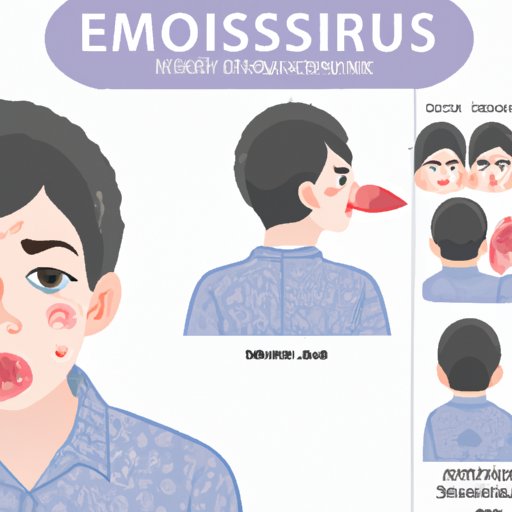
What is the Kissing Disease?
Have you ever heard of mononucleosis? Most people know it as the “kissing disease.” Mononucleosis is a viral infection that spreads through saliva, hence the nickname. It’s not a severe illness, but it can leave you feeling very sick for a few weeks or even months.
In this article, we will dive deeper into the world of mononucleosis: what it is, how to prevent it, and what to do if you get it. This guide is for anyone who wants to learn more about the kissing disease and keep themselves and their loved ones healthy.
The Truth About the Kissing Disease: Everything You Need to Know
Mononucleosis, or “mono,” is a type of viral infection caused by the Epstein-Barr virus (EBV). This virus is found in saliva, so it can be easily transmitted through kissing, hence the nickname “the kissing disease.” Mono is most commonly seen in teenagers and young adults, but anyone can get it.
Once you contract the virus, it will usually take 4-6 weeks to start showing symptoms. The symptoms of mononucleosis can be different for everyone, and some people may not even have any symptoms.
Mononucleosis: Symptoms, Treatments, and How to Prevent the Kissing Disease
The symptoms of mononucleosis are often flu-like and can include fatigue, sore throat, fever, swollen glands, and body aches. Some people may also develop a rash or experience abdominal pain. There is no specific cure for mononucleosis – it’s a virus, so antibiotics won’t work. Instead, doctors will recommend rest, fluids, and over-the-counter pain relief medication to relieve symptoms.
Preventing mononucleosis can be challenging because it’s contagious and can spread easily through kissing, sharing utensils, or even coughing. However, there are ways to reduce your chances of getting the virus. Avoiding close contact with people who are sick, washing your hands frequently, and avoiding sharing utensils can all help to lower your risk. Additionally, maintaining a healthy lifestyle and keeping your immune system strong can also help to prevent mono and other infections.
The Science behind Mononucleosis: Why is it Called the Kissing Disease?
The Epstein-Barr virus (EBV) is responsible for mononucleosis. This virus can be found in saliva and can be spread through kissing, hence the nickname “the kissing disease.” The virus is highly contagious and can also be spread through sharing utensils and coughing.
From Kissing to Sharing Utensils: Ways to Avoid Mononucleosis
Preventing mononucleosis can be challenging because it’s easily spread through physical contact. Kissing, sharing utensils, and drinking after someone are all common ways the virus can be spread. Being mindful of these activities and avoiding them can help decrease your risk.
It’s also important to be careful in communal living situations like college dorms or nursing homes, where viruses can spread quickly. Stay healthy by washing your hands often, avoiding close contact with people who are sick, and avoiding sharing personal items like towels or clothes with people who might have the virus.
Surviving Mononucleosis: Personal Stories from Those Who’ve Been There
If you’ve been diagnosed with mononucleosis, you’re not alone. Many people have had the illness and experienced the same symptoms. Some people have even shared their personal stories about their experiences with mono, offering advice and encouragement to those currently fighting the virus.
A few tips for getting through the illness include getting plenty of rest, drinking fluids, and taking over-the-counter pain relief medication. It’s also important to avoid physical activity until you’re feeling better, as mono can weaken your immune system and make you more vulnerable to other infections.
The Kissing Disease and its Stigma: Debunking Myths and Misconceptions
There are several myths and misconceptions surrounding mononucleosis. Some people believe that mono is a sexually transmitted disease, but it’s not. Others think that once you’ve had it, you can’t get it again, which is also untrue.
It’s important to educate yourself about mononucleosis and spread awareness to debunk these myths. Mono is a common illness, and you can get it multiple times. Understanding how it spreads and learning ways to prevent it can help keep you and your loved ones healthy.
Conclusion
Mononucleosis, or the “kissing disease,” is a common viral infection that can leave you feeling very sick for weeks or even months. Although it’s not a severe illness, it’s important to take it seriously and seek medical treatment if you think you may have mono.
By understanding how mono spreads and learning ways to prevent it, you can reduce your chances of getting the virus. If you’re currently fighting mono, know that you’re not alone, and there are ways to get through it. Education and awareness are key to debunking myths and misconceptions about the kissing disease and keeping yourself and your loved ones healthy.




